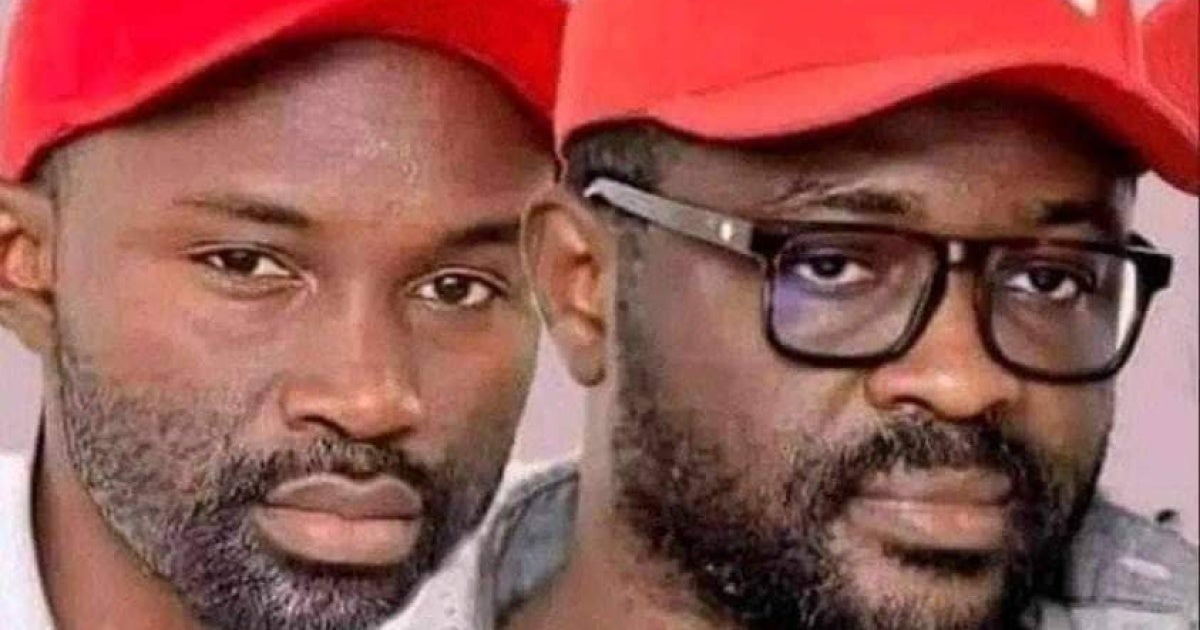
Guinean Activists Missing: One Year On
Guinea ‘s military authorities should credibly investigate the disappearances of two political activists, make their whereabouts known, and either charge them with a recognizable crime or release them immediately, Human Rights Watch said today.
One year ago, security forces arbitrarily detained three members of the opposition coalition National Front for the Defense of the Constitution (Front National pour la Défense de la Constitution, FNDC), Oumar Sylla (known as Foniké Menguè), Mamadou Billo Bah, and Mohamed Cissé, in Conakry, Guinea’s capital, and transferred them to an unidentified location. Human Rights Watch received credible information, confirmed by national and international media, that security forces had tortured the three men. Cissé was released on July 10, 2024, while Sylla and Bah remain missing.
“It’s been one year since Sylla and Bah went missing, and the Guinean authorities have yet to carry out a credible investigation,” said Ilaria Allegrozzi, senior Sahel researcher at Human Rights Watch. “Guinean authorities should thoroughly and independently investigate the disappearances and prosecute those responsible.”
The authorities have opened an investigation into the disappearance of the three men. But they have denied any responsibility and failed to acknowledge the men’s detention or disclose their whereabouts, despite requests for information by lawyers representing the men, and by international and national human rights organizations.
On July 9, 2024, dozens of soldiers, gendarmes, and armed men in civilian clothes, stormed Sylla’s home and arbitrarily detained him and the others. The security forces repeatedly beat the three political activists, then took them to the gendarmerie headquarters in Conakry, and then to an army camp on Kassa island, off Conakry’s coast.
The FNDC has been calling for the restoration of democratic rule in Guinea following a military coup in September 2021. In August 2022, Guinea’s junta, headed by Gen. Mamady Doumbouya, dissolved the FNDC on politically motivated grounds, but it has continued its activities.
On the morning of his disappearance, Sylla, who is the FNDC coordinator, had urged his supporters to go out and protest on July 11, 2024, against media shutdowns by the authorities and the high cost of living.
Sylla was one of a number of people arrested in 2022 on charges of “illegal protest and destruction of public and private buildings” following violent demonstrations in Conakry in which at least five people were killed. Bah, the FNDC outreach coordinator, was previously arrested in January 2023 on charges of “complicity in the destruction of public and private property, assault, and battery” for taking part in protests. Both were released in May 2023 and cleared of all charges.
Since taking power, the junta has suspended independent media outlets, arbitrarily arrested and forcibly disappeared journalists and political opponents. Security forces have used excessive force, including tear gas and gunfire, to disperse peaceful protesters, leading to dozens of deaths since January 2024.
On June 21, gunmen abducted and tortured Mohamed Traoré, a prominent lawyer and former bar association president, in apparent reprisal against his decision to resign from the National Transitional Council, the junta’s leading transitional body.
The military authorities promised to hold elections before the end of 2024, but failed to meet the deadline, sparking opposition-led protests in Conakry in January. Following the protests, officials announced a new election timeline. Gen. Doumbouya has set September 21 as the date for a constitutional referendum and Prime Minister Amadou Oury Bah announced in May that presidential elections would take place in December.
“Four years into military rule, the suppression of rights and freedoms has only intensified,” said a prominent FNDC member who is in hiding. “The government has stifled free expression and assembly; it has incapacitated the political opposition through arbitrary arrests, enforced disappearance, harassment, and intimidation. Enough is enough.”
Enforced disappearances under international law occur when people acting on behalf of the government arrest, detain, or abduct people and then refuse to acknowledge the act or conceal their whereabouts or what happened to them. International law prohibits enforced disappearances, which violate fundamental rights to liberty and security and the right to be free from torture or cruel, inhuman, and degrading treatment.
The International Convention for the Protection on All Persons from Enforced Disappearances provides that “no one shall be subjected to enforced disappearance” and imposes an absolute ban on secret detention. It also requires countries to end abusive practices that facilitate enforced disappearances including arbitrary incommunicado detention, torture, and extrajudicial executions.
Guinea is not a party to the treaty but is still bound by international human rights law prohibiting unlawful arrests, abduction, arbitrary detention, ill-treatment of detainees, and other due process violations. It guarantees victims of abuse the right to an effective remedy.
“When authorities deny knowledge of the detentions, they deprive detainees of any protections and make them vulnerable to even worse crimes, like torture,” Allegrozzi said. “The authorities should take immediate, concrete steps by credibly investigating the disappearances and ratifying the International Convention for the Protection of All Persons from Enforced Disappearance.”
https://www.hrw.org/news/2025/07/09/a-year-on-guinean-activists-still-missing


